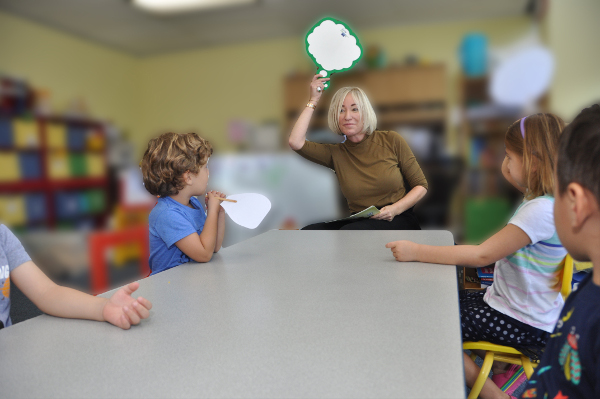Social Emotional Learning
Does your child struggle with interactions and maintaining friendships? Does your child have trouble participating in a group and understanding how their behavior may affect other group members?
At Thera+Kids Associates, Lori utilizes a variety of methodologies including the Social Thinking® framework developed by Michelle Garcia Winner and The Zones of Regulation® by Leah Kupyers. These approaches help teach children core social competencies and the use of practical tools to better understand and manage emotions, thoughts, and impulses.
Thera+Kids is also excited to announce co-treatment social learning and music therapy groups, social learning and yoga/mindfulness, and cooking groups.
Groups for Children (4 – 7)
Sometimes children have difficulty connecting with their peers—sitting in circle time, sharing toys and playing with others can often be exceptionally challenging. Through activities such as music, drama, stories, art, movement and pretend play, children learn core Social Thinking® concepts to encourage social-communicative competence. Group members improve social awareness, develop a social/emotional vocabulary, learn how to actively listen to others, participate in a group, notice and comprehend non-verbal communication and understand the perspectives of their peers.
Groups for Children (8 – 10)
Groups are based upon the You are a Social Detective!, Social Thinking and Me, and Superflex: A Superhero Social Thinking® Curriculum. The Social Thinking® methodology helps children develop foundational social thinking concepts to improve social cognition. This group centers on teaching children how to better focus on, interpret, problem solve and respond to social information. Children will also learn strategies to help with self regulation. The ability to stay regulated facilitates social emotional learning. Using the engaging characters Superflex and the team of Unthinkables, children learn about their social brains and the challenges (“Unthinkables”) they may have that make it difficult to become better Social Thinkers®. Children will learn how to identify these challenges and “defeat” them by developing a “toolbox” of strategies.
Activities such as games with rules, gross motor fun, stories, drama, music, arts and crafts and making videos are used to teach children how to think socially.

– Thomas Aquinas
*Please do not include confidential information in your message. One of our professionals will respond within 48 hours.
